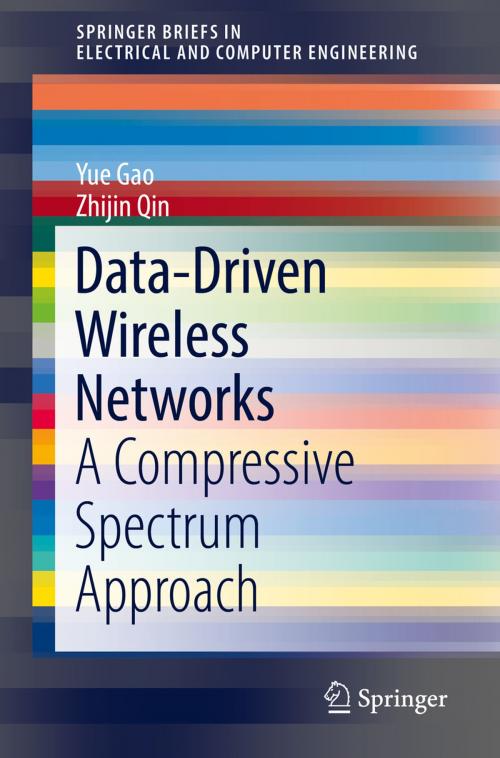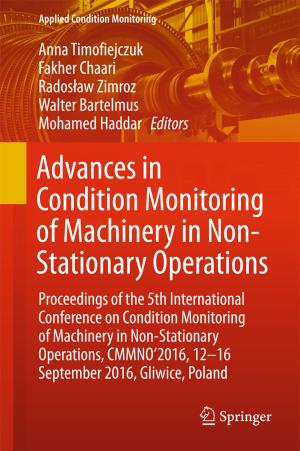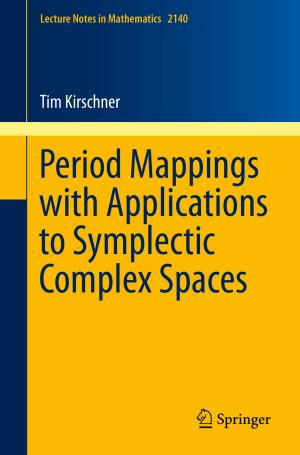Data-Driven Wireless Networks
A Compressive Spectrum Approach
Nonfiction, Science & Nature, Technology, Telecommunications, Engineering| Author: | Yue Gao, Zhijin Qin | ISBN: | 9783030002909 |
| Publisher: | Springer International Publishing | Publication: | October 19, 2018 |
| Imprint: | Springer | Language: | English |
| Author: | Yue Gao, Zhijin Qin |
| ISBN: | 9783030002909 |
| Publisher: | Springer International Publishing |
| Publication: | October 19, 2018 |
| Imprint: | Springer |
| Language: | English |
This SpringerBrief discusses the applications of spare representation in wireless communications, with a particular focus on the most recent developed compressive sensing (CS) enabled approaches. With the help of sparsity property, sub-Nyquist sampling can be achieved in wideband cognitive radio networks by adopting compressive sensing, which is illustrated in this brief, and it starts with a comprehensive overview of compressive sensing principles. Subsequently, the authors present a complete framework for data-driven compressive spectrum sensing in cognitive radio networks, which guarantees robustness, low-complexity, and security.
Particularly, robust compressive spectrum sensing, low-complexity compressive spectrum sensing, and secure compressive sensing based malicious user detection are proposed to address the various issues in wideband cognitive radio networks. Correspondingly, the real-world signals and data collected by experiments carried out during TV white space pilot trial enables data-driven compressive spectrum sensing. The collected data are analysed and used to verify our designs and provide significant insights on the potential of applying compressive sensing to wideband spectrum sensing.
This SpringerBrief provides readers a clear picture on how to exploit the compressive sensing to process wireless signals in wideband cognitive radio networks. Students, professors, researchers, scientists, practitioners, and engineers working in the fields of compressive sensing in wireless communications will find this SpringerBrief very useful as a short reference or study guide book. Industry managers, and government research agency employees also working in the fields of compressive sensing in wireless communications will find this SpringerBrief useful as well.
This SpringerBrief discusses the applications of spare representation in wireless communications, with a particular focus on the most recent developed compressive sensing (CS) enabled approaches. With the help of sparsity property, sub-Nyquist sampling can be achieved in wideband cognitive radio networks by adopting compressive sensing, which is illustrated in this brief, and it starts with a comprehensive overview of compressive sensing principles. Subsequently, the authors present a complete framework for data-driven compressive spectrum sensing in cognitive radio networks, which guarantees robustness, low-complexity, and security.
Particularly, robust compressive spectrum sensing, low-complexity compressive spectrum sensing, and secure compressive sensing based malicious user detection are proposed to address the various issues in wideband cognitive radio networks. Correspondingly, the real-world signals and data collected by experiments carried out during TV white space pilot trial enables data-driven compressive spectrum sensing. The collected data are analysed and used to verify our designs and provide significant insights on the potential of applying compressive sensing to wideband spectrum sensing.
This SpringerBrief provides readers a clear picture on how to exploit the compressive sensing to process wireless signals in wideband cognitive radio networks. Students, professors, researchers, scientists, practitioners, and engineers working in the fields of compressive sensing in wireless communications will find this SpringerBrief very useful as a short reference or study guide book. Industry managers, and government research agency employees also working in the fields of compressive sensing in wireless communications will find this SpringerBrief useful as well.















